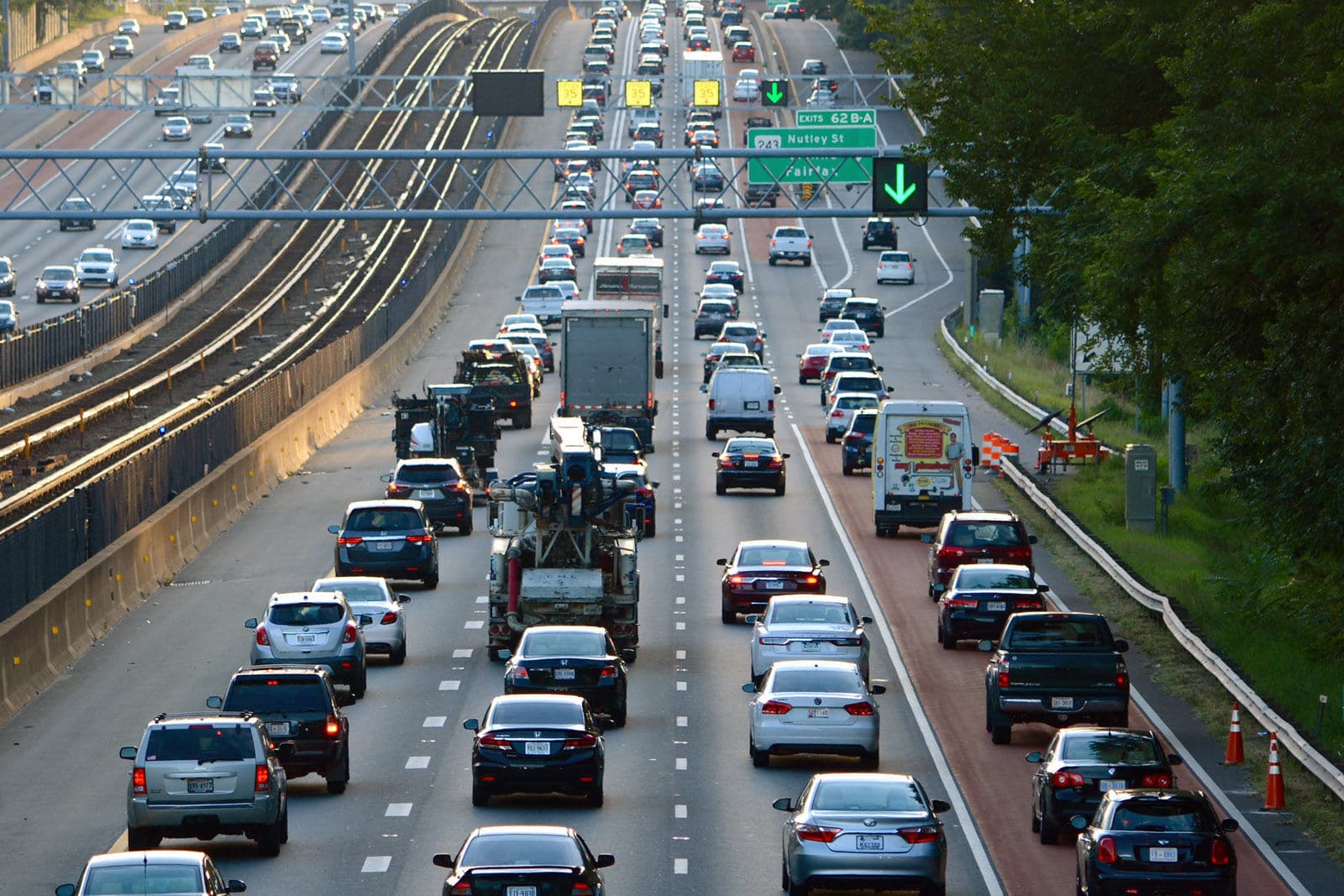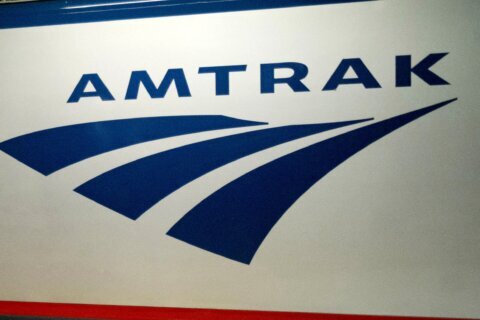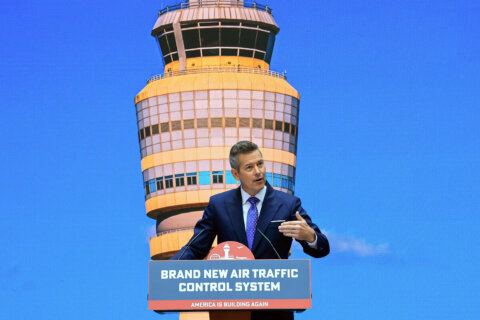
A new study puts numbers to something most people in the region probably already sensed: The D.C. area’s traffic is among the worst in the nation, and it’s getting worse.
The 2019 Urban Mobility Report, by the Texas A&M University Transportation Institute, found that the average D.C.-area car commuter spends 102 hours a year stuck in traffic.
That’s the third-worst total in the nation, and that number, based on 2017 data, is up from 99 hours in 2016, 96 in 2015, 90 in 2012 and 36 in 1982.
That’s not all: The average car commuter in the area wastes 38 gallons of gasoline — that’s second in the nation — and between the gas and extra maintenance, spends an extra $1,840 per year because of congestion, also third in the country.
Tom Costello, the transportation correspondent for NBC News, told WTOP there was a bright side — D.C. isn’t No. 1 (that would be Los Angeles with a whopping 119 hours of congestion per commuter), and “a lot of that is because we’ve got a good economy; we’ve got nearly full employment.”
OK, that’s it for the bright side.
The underrated causes of D.C.-area traffic include what Costello called “the Uber and Lyft factor.”
The original perception was that people would give up using their own cars in order to use the ride-hailing services, but in fact, people are giving up mass transit to use the services, Costello said. A different recent study found that 7% of the D.C. area’s traffic comes from Uber and Lyft.
It’s a structural problem, Costello said, and the study agrees: improving roads will only have a “modest effect” on traffic, the study said. The solution requires changes in how people commute.
“There is more of an appetite than ever for trying to carpool, to cut down on the number of vehicles on the road,” Costello said. He cited the increase of telecommuting and added, “Let’s hope Metro continues to improve.”
“I think it is pretty clear that everything isn’t happening enough,” Tim Lomax, a research fellow at the transportation institute and co-author of the report, told The Associated Press.
Following the recession that began in 2008, officials predicted changes in commuting patterns — transit use, carpooling and more reliance on off-peak travel — would solidify and start to change habits.
“Our data just doesn’t show that,” Lomax said, referring to the updated estimates. “It shows that there is a pretty direct link between economic growth and congestion.”
As for the timing, the D.C. area’s traffic gets worse at about the times one would expect: The 4 p.m. and 5 p.m. hours on weekdays are generally the worst, with a bit of a bump in the 3 p.m. hour on Fridays, and the 5 p.m. Friday hour not quite as bad as on other weekdays. In the morning, the 7 a.m. and 8 a.m. hours are the worst, except for Fridays, which aren’t so bad.
The five worst metropolitan areas:
- Los Angeles
- San Francisco
- D.C.
- New York
- Boston
The least busy: Kokomo, Indiana, with only eight hours of delays per year; Lawton, Oklahoma, with six; and Kailua, Hawaii, with only three hours of traffic a year.
The report projects the problem to get even worse nationwide: The cost of congestion across the U.S. will grow from $166 billion in 2017 to $200 billion in 2025.
The report was compiled from data from INRIX and the Federal Highway Administration. You can read the whole report and the page for the D.C. area on the institute’s website.
The Associated Press contributed to this report.








